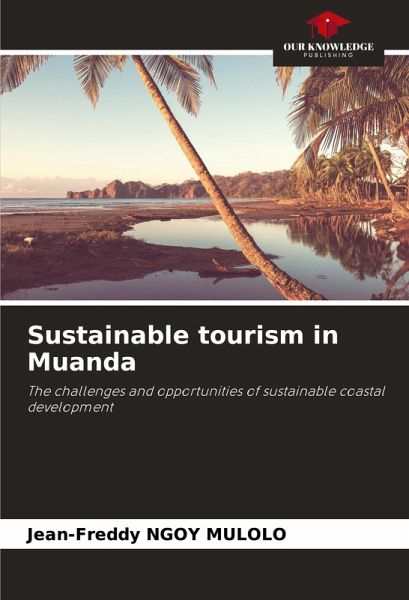
Sustainable tourism in Muanda
The challenges and opportunities of sustainable coastal development
Versandkostenfrei!
Versandfertig in 6-10 Tagen
40,99 €
inkl. MwSt.

PAYBACK Punkte
20 °P sammeln!
Human societies organize the space in which they live, manufacture and trade. For example, they need to set up an organization to manage their transportation and exchange systems, their water resources, their waste, etc. Today, spatial planning refers to public policy that seeks to guide the distribution of populations, their activities and their infrastructures within a given space, while taking into account global political decisions. Spatial planning policies can cover a wide range of areas: urban networks and structures; planning and prioritization of major infrastructures and facilities d...
Human societies organize the space in which they live, manufacture and trade. For example, they need to set up an organization to manage their transportation and exchange systems, their water resources, their waste, etc. Today, spatial planning refers to public policy that seeks to guide the distribution of populations, their activities and their infrastructures within a given space, while taking into account global political decisions. Spatial planning policies can cover a wide range of areas: urban networks and structures; planning and prioritization of major infrastructures and facilities deemed to be "structuring"; location and relocation of productive activities; identification and positioning of innovation and R&D centers; planning of specialized areas (tourism, mountains, coastline); consideration of supranational and cross-border dimensions; so-called "sustainable development" issues.












